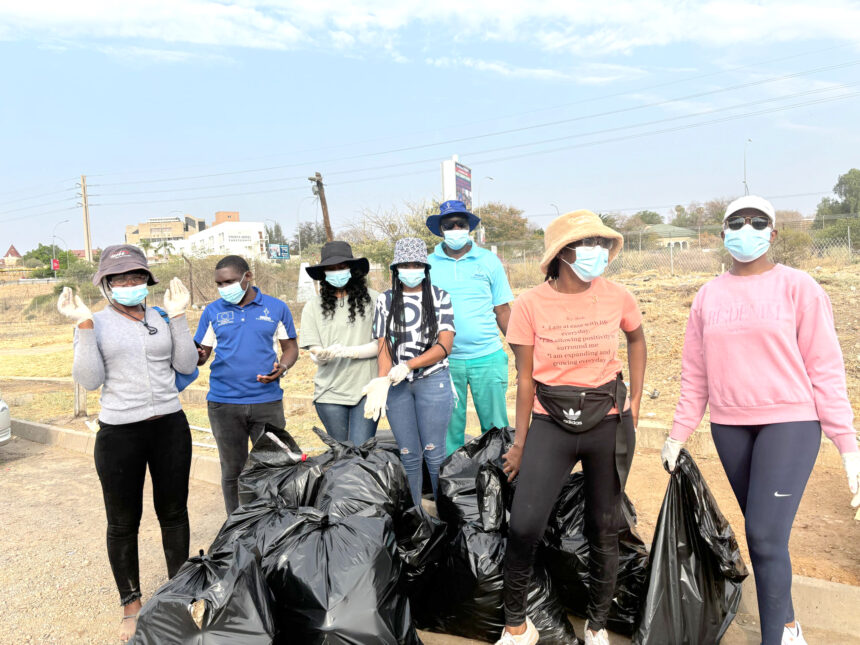Considering the global climate crisis, a group of young Namibians have taken matters into their own hands.
The Green Climate Awareness Foundation (GCAF), a youth-led non-governmental organisation (NGO), is leading the charge in educating and empowering communities to take action against climate change.
The organisation was founded in 2023, emerging from a grassroots’ initiative started in 2015 by a group of high school pupils who saw a critical need for climate education in their communities.
“We noticed that many people, especially in informal settlements, didn’t understand the impact of climate change on their lives. We wanted to make climate change education accessible. So, we began promoting sustainability through community projects such as clean-up campaigns, gardening initiatives and other outreach programmes,” said sustainable development goals advocate Sophie Tendane. As a team of over 60 volunteers from 14 regions across Namibia, all under the age of 30, they noticed that most climate information is in English.
This makes it hard for local communities to be included. They are now working on translating the sustainable development goals (SDGs) into local languages.
The team believes that people make better choices when they understand issues or concepts in their own language.
Tendane added that the volunteers, primarily unemployed and undergraduates, are passionate about environmental issues, and committed to making a difference in their communities.
Despite not having funds, they have done some activities that they are proud of.
At the moment, they collaborate with other groups when needed, such as the Beehive Foundation and Green Eco Tech.
“For example, we have worked with the United States of America embassy through the Youth Sandbox initiative to advocate for arts and SDGs in schools, such as Havana Primary School. We engaged in multiple clean-up initiatives, including the City of Windhoek Clean-Up campaign. The recent one was the Spogomi World Cup, a trash-picking competition.
“We have also worked with the Hadula Charity Foundation and Climate Creators Hub on a webinar, highlighting the role of Geography in climate education. We would like to do more – but without funding, our hands are tied. However, we will not give up. As young people, it is our responsibility to take care of our environment,” she said.
She noted that GCAF gives young people the chance to be part of something big which speaks on the issues they are facing. “One does not need qualifications to make the world a better place. The environment belongs to all of us, and we all have a role in protecting it, no matter our education or background.”
“Many of our volunteers are under 30, and some are still learning about climate change themselves. We want to create a space where they can gain knowledge, develop skills, and take action. Our work helps young people feel empowered to make a difference in their communities, starting with as little as picking up trash. Our efforts help create a Circular Governance Model where information flows freely between different parts of society. When local people, especially those in informal areas, understand climate issues, they can contribute to decision-making processes. This inclusive approach ensures that everyone’s voice is heard, and more effective, community-based solutions are developed,” Tendane noted.
-pmukokobi@nepc.com.na



